Previous
Fidyah Distributions
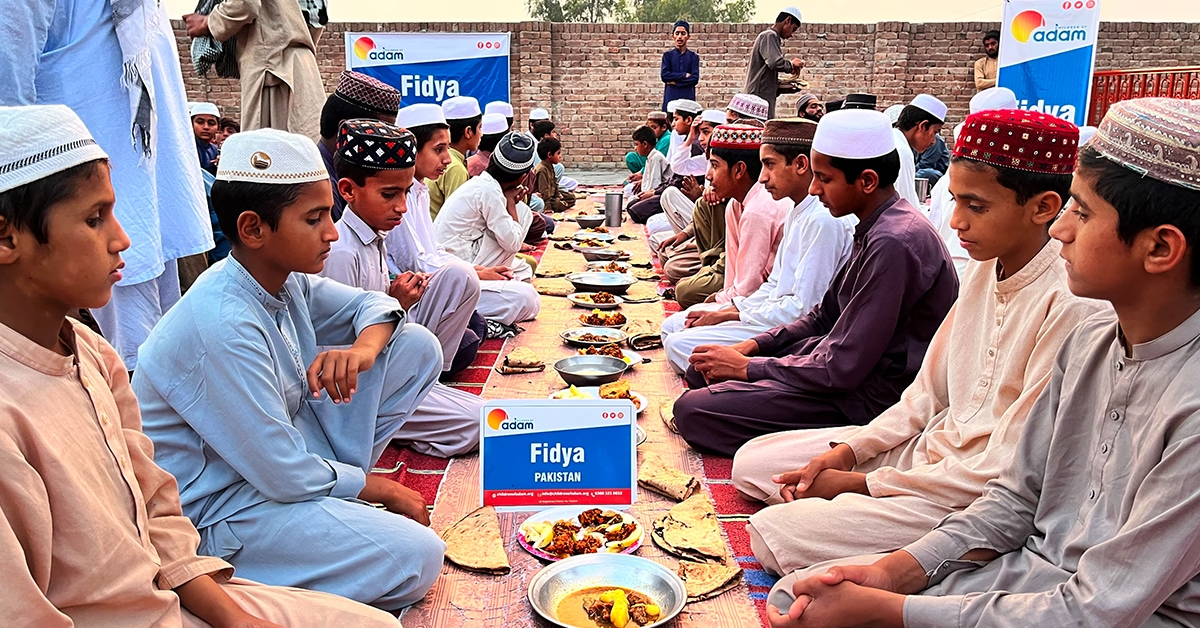
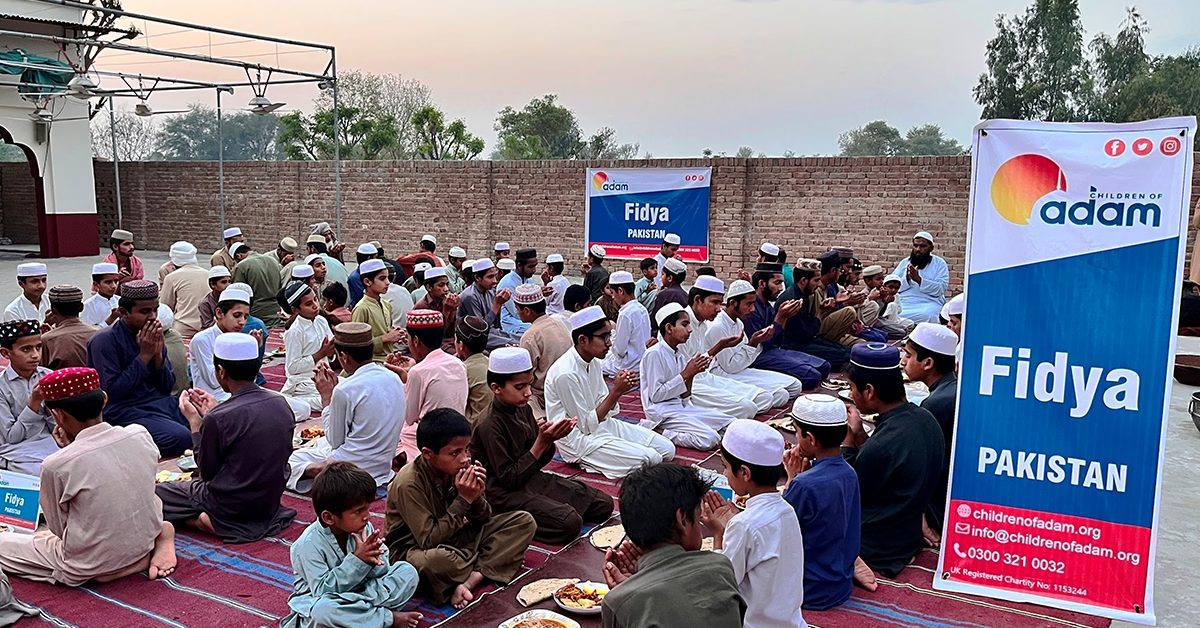

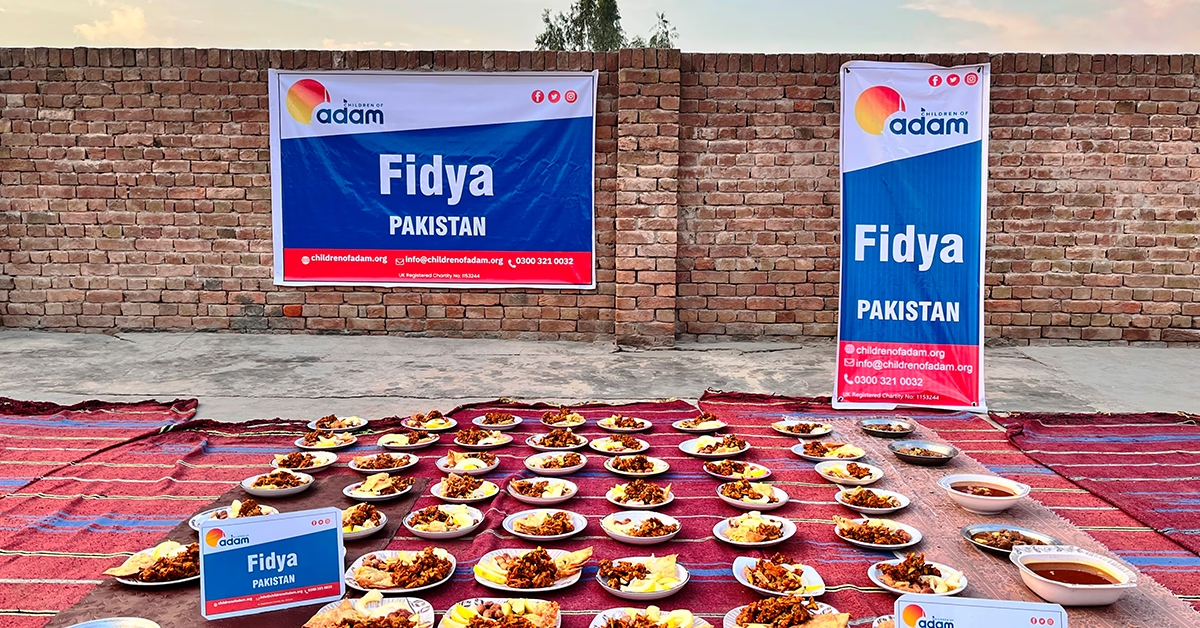
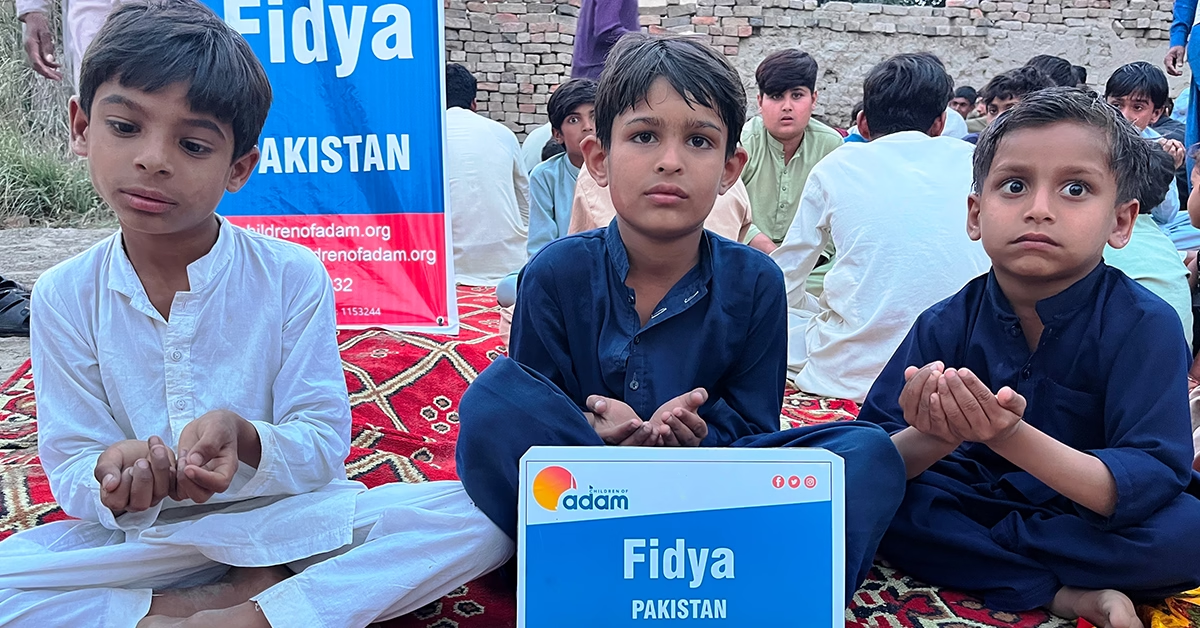
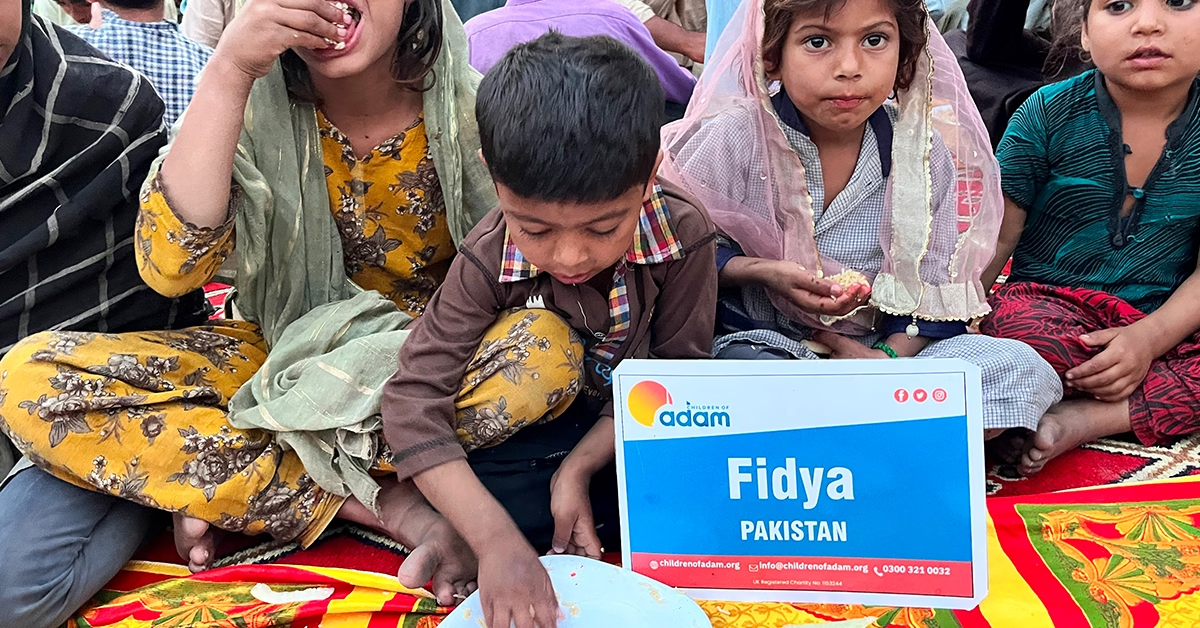
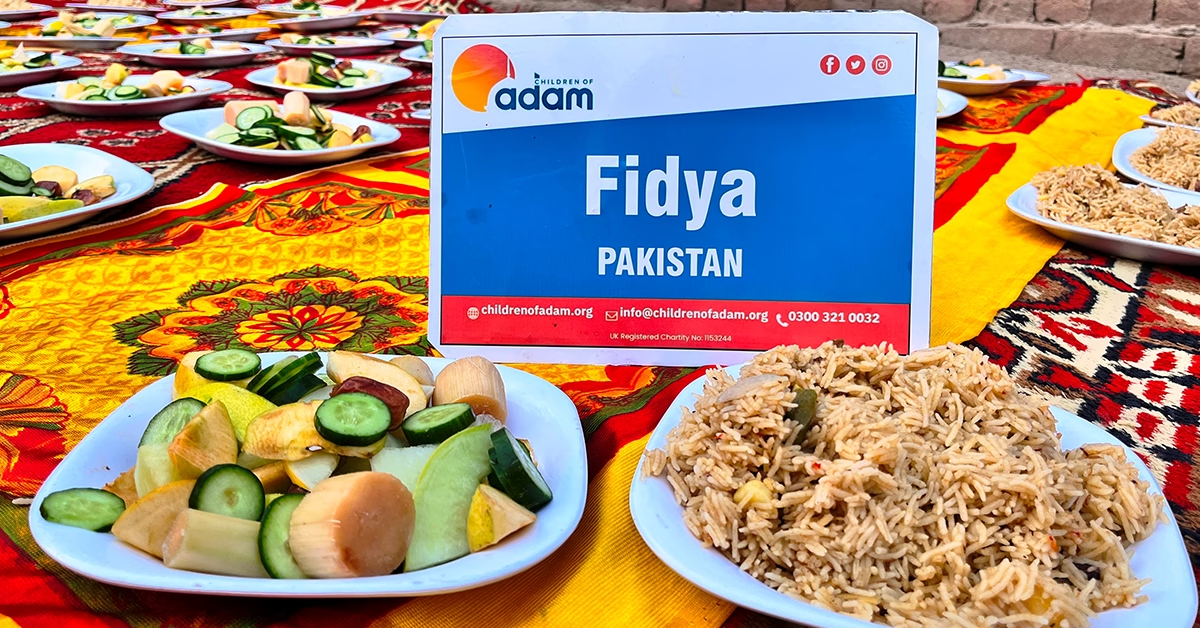
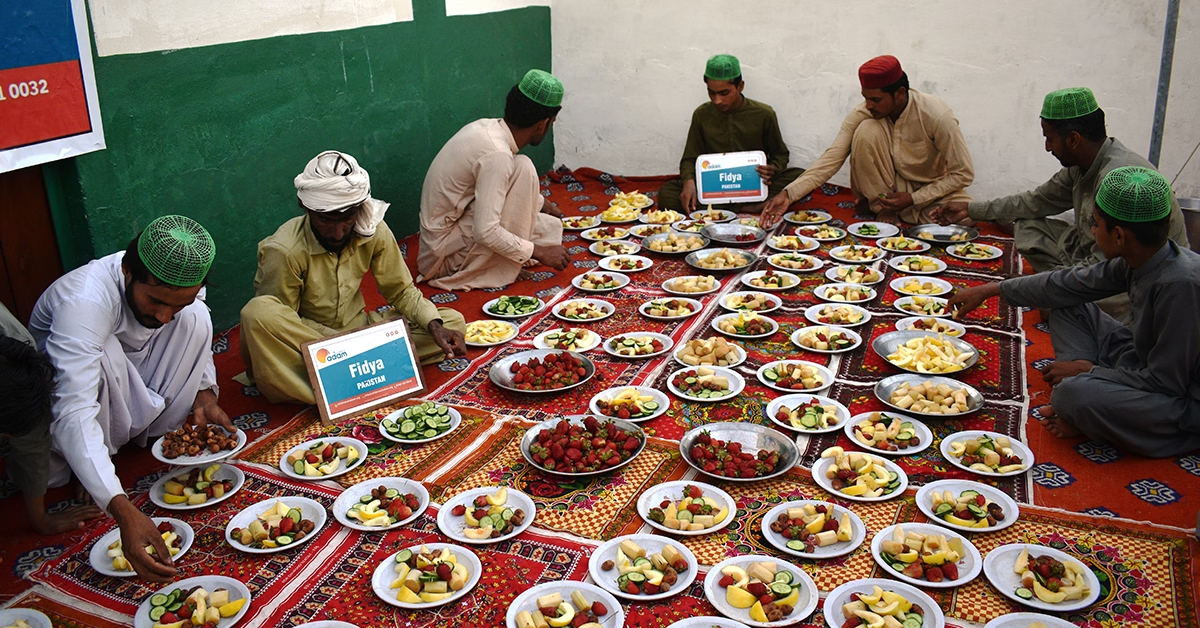


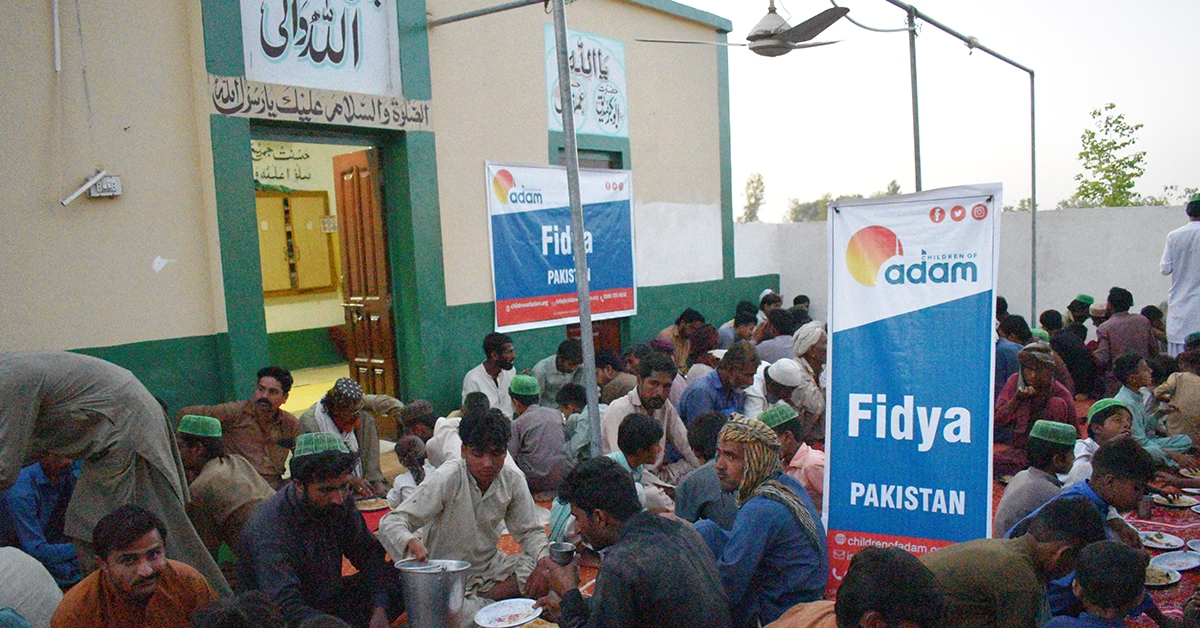



















Fidya is a payment that covers each fasting day a person cannot observe and cannot realistically make up later. Kaffarah is a separate expiation for deliberately breaking a Ramadan fast without a valid reason.
Fidya per day: £5
Kaffarah: either fast 60 consecutive days, or feed 60 people for each invalidated fast. If fasting 60 is not possible, feeding 60 is used instead.
Quick options: pay Fidya for 1, 7, or 30 days; or cover the feeding cost for Kaffarah.
Fidya is for those who cannot fast and are not expected to make up the days later, such as people with long-term illness or frailty. It is paid per day missed and used to feed people in need.
Kaffarah applies when a Ramadan fast is broken on purpose without a valid exemption. The default expiation is 60 consecutive fasts. If a person is unable to complete that, they provide food to 60 people for the same fast. The original day that was missed is still made up separately.
If you miss days due to travel or a short-term condition and you can make them up later, you do not pay Fidya for those days; you make them up outside Ramadan.
Classical texts describe feeding a needy person per day missed using a standard staple-food measure. We convert that to a UK meal benchmark and publish a single daily rate each year, reviewing it periodically so it remains realistic. This year that amounts to £5 per day
Funds are used to provide food to eligible recipients. Distributions prioritise families facing food insecurity and are delivered through verified partners.






























Fidya covers validly missed days you cannot make up. Kaffarah is an expiation for a fast broken deliberately without a valid reason.
People who cannot fast and are not expected to recover the missed days later, for example due to long-term illness or advanced age.
It equals the cost of feeding one person for a day. This year that works out to £5 per day
Islam places profound emphasis on the well-being of its followers, thus allowing legitimate circumstances such as illness, travel, intense thirst or hunger, advanced age, and the rare occurrence of compulsion to pause one’s fast. These exemptions are a testament to the faith’s compassionate nature, ensuring that adherents maintain their health and dignity while observing their religious obligations.
No. They make up the missed days when able.
Sixty consecutive fasts for each invalidated day. If that is not feasible, feeding sixty people per day is given instead. The missed day is still made up.
This depends on circumstances and scholarly view. Many advise making up missed days later; where fasting is not possible, feeding the poor may be advised. Seek case-specific guidance.
When it becomes clear a missed day cannot reasonably be made up, or during Ramadan if the condition is ongoing.
Yes. The obligation can be fulfilled by providing staple food in the classical measure; we convert this to a simple monetary rate for convenience.
Fidya 2026 is a spiritually enriching obligation.
As we conclude our exploration of fidya, its essence becomes clear. This practice not only underscores our commitment to Allah’s commandments but also highlights the profound compassion inherent in our faith. Through fulfilling fidya, we aspire to maintain the sanctity of Ramadan while simultaneously extending our generosity towards those most in need.
Fidya embodies empathy and communal responsibility.
Appreciation for this practice calls for us to reflect deeply. It is not just about monetary contributions or fulfilling an obligation; it is about recognising the shared human experience, our interconnectedness, and the responsibility we hold towards our community.
Ultimately, as Ramadan 2026 invites us once more to observe the divine essence of fasting, let fidya be a reminder. Let it encompass a celebration of our Islamic faith, one that is beautiful in its empathy, reaching out with kindness, and nurturing the spiritual well-being of all.
EXCELLENTTrustindex verifies that the original source of the review is Google. One of the best charity I've come across in England. The team is trustworthy & communication with donors is prompt and regular. I continue to be impressed with their commitment, their reach, their work and their fundraising activities - keep up the great work!Posted onTrustindex verifies that the original source of the review is Google. Amazing charity doing some amazing workPosted onTrustindex verifies that the original source of the review is Google. Wonderful series and gripping throughout. In original language with English subtitles. At every stage difficult to think what will happen next ..wonderfully structures and with 2 of the 30 episodes to watch I have no idea how this will end. Highly recommend.Posted onTrustindex verifies that the original source of the review is Google. Peterborough charity. They help and support so many people where its needed most, as well as the local community where they can. Help them to help others.Posted onTrustindex verifies that the original source of the review is Google. Wonderful charity. It is heart-warming to know there are people in Peterborough dedicated to serve others and make a difference to the lives of those often forgotten in society.Posted onTrustindex verifies that the original source of the review is Google. Amazing staff doing a great job helping the communityPosted onTrustindex verifies that the original source of the review is Google. Fantastic charity really making a difference on the ground, head up by some lovely people.Verified by TrustindexTrustindex verified badge is the Universal Symbol of Trust. Only the greatest companies can get the verified badge who has a review score above 4.5, based on customer reviews over the past 12 months. Read more
